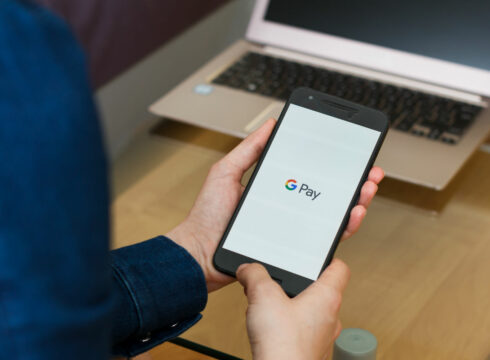SUMMARY
Google has said Google Pay does not need RBI authorisation as it not a payment system operator
The tech company claimed that Google Pay was merely a third-party application provider for UPI
A PIL had alleged that Google Pay was facilitating financial transactions without proper authorisation from RBI
Inc42 Daily Brief
Stay Ahead With Daily News & Analysis on India’s Tech & Startup Economy
Google India Digital Services has told the Delhi high court that the Google Pay app does not need authorisation from the Reserve Bank of India (RBI) since it’s not a payment system operator (PSO) but merely a third-party application provider.
In an affidavit, filed in response to public interest litigation (PIL) which had alleged that Google Pay was facilitating financial transactions without proper authorisation from RBI, Google said that the National Payments Corporation of India (NPCI) is the PSO authorised by the RBI. NPCI is the owner and operator of the Unified Payments Interface (UPI), which in turn, has authorised third-party application providers (TPAPs) and payment service providers, such as Google Pay to conduct and facilitate transactions on its network.
On Wednesday, a bench of Chief Justice DN Patel and Justice Prateek Jalan listed the matter for further hearing on August 31, when the petitioner sought time to respond to Google”s affidavit.
The petitioner, Abhijit Misra, had contended that Google Pay does not figure in NPCI’s list of authorised ”payment systems operators” released on March 20, 2019.
Google Pay assured that it was working within the guidelines mandated by the RBI, while also taking steps to comply with the central bank’s ”Guidelines on Regulation of Payment Aggregators and Payment Gateways” dated March 17, 2020, according to which, all payment aggregators and TPAPs were mandated to get themselves registered with the RBI.
RBI had earlier told the court that Google Pay is a third-party app provider (TPAP) and does not operate any payment systems. Therefore, its operations are not in violation of the Payment and Settlement System Act of 2007, RBI had said.
Last month, it was reported that Google was looking to partner with some undisclosed lending firms to launch a credit facility for small and medium enterprises (SMEs) or merchants listed on its digital payments platform Google Pay by the end of this year. The product feature would be launched in partnership with bank partners. It would help over 3 Mn verified merchants to avail instant credits if only the bank partners deem them creditworthy.
Earlier this year, Google Pay was also revealed to be the most downloaded fintech application worldwide, with 15.6 Mn downloads in February 2020. Of these, 83.6% of downloads for the application, amounting to around 13.6 Mn, were from India.
In February, Google and Alphabet CEO Sundar Pichai said that the company had taken the learnings from the successful launch of Google Pay in India, to shape its global digital payments products. He added that the success of the unified payments interface (UPI) platform had influenced the course of product development.
Note: We at Inc42 take our ethics very seriously. More information about it can be found here.


